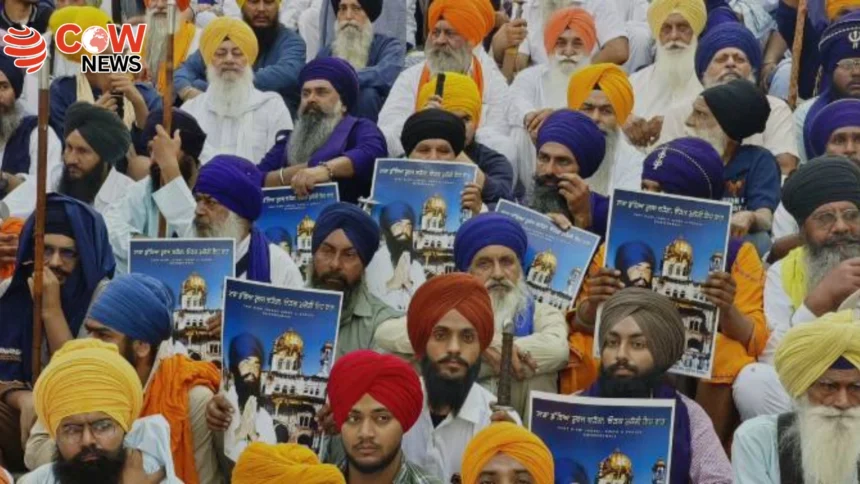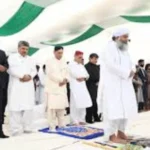After 41 years, the sacred grounds of Akal Takht and the Golden Temple once again echoed with resounding chants of “Khalistan Zindabad,” reviving memories of Operation Blue Star and asserting the undying spirit of Sikh resistance.
On the 41st anniversary of Operation Blue Star, pro-Khalistan organisations led by Dal Khalsa organised a “Genocide Remembrance March” from Gurdwara Burj Phoola Singh to Akal Takht.
The march marked the beginning of a ten-day remembrance campaign titled “Yaad-e-Mazloomiat” (Memory of the Oppressed) from June 1 to 10, aiming to highlight historical injustices faced by the Sikh community.
Throughout Amritsar and in parts of Indian Punjab, a complete shutdown was observed on June 6. Protesters chanted slogans such as “Khalistan Zindabad” and “Shaheed Bhindranwale Amar Rahein” (“Martyr Bhindranwale Lives Forever”), paying tribute to the slain Sikh leader and others martyred during the 1984 Indian Army assault.
Pro-Khalistan leaders, including Sardar Simranjit Singh Mann (former MP), Dhyan Singh Mand, and senior activists from Shiromani Akali Dal (Amritsar) and Dal Khalsa, held placards of Sant Jarnail Singh Bhindranwale, raised Khalistani flags, and declared that the movement was not dead — but very much alive and resolute.
Even the prayer (ardaas) at Akal Takht carried a direct message. Acting Jathedar Giani Kuldeep Singh Gurgaj urged all Sikh organisations to unite in demanding the release of “Bandi Singhs” (Sikh prisoners) who have completed their sentences but remain incarcerated.
Their release has become a spiritual and symbolic cornerstone of the Khalistan movement.
SGPC President Harjinder Singh Dhami also paid tribute to the families of the 1984 martyrs, reiterating that the wounds of Operation Blue Star remain unhealed.
For many Sikhs, the army operation that stormed Sri Darbar Sahib (Golden Temple) is seen as sacrilege and an attack on Sikh identity.
Political analysts believe that the unity among Sikh organisations, including student federations and Panthic groups, poses a significant challenge to New Delhi’s narrative and control.
With unrest already flaring in Kashmir, Northeast India, and Naxal-affected regions, Punjab could become the next major internal front for the Indian government.







